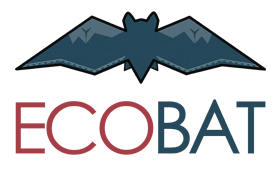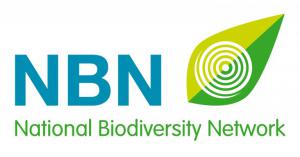Prof. Fiona Mathews
 Fiona’s work focuses on how modern challenges, ranging from urban expansion and human population increases, to expose to wind turbines and light pollution affect population dynamics. Fiona uses an integrated ecological and epidemiological approach to study species ranging from humans to endangered wildlife.
Fiona’s work focuses on how modern challenges, ranging from urban expansion and human population increases, to expose to wind turbines and light pollution affect population dynamics. Fiona uses an integrated ecological and epidemiological approach to study species ranging from humans to endangered wildlife.

 Charlie is Data & Information Officer for the Mammal Society and is currently overseeing Ecobat. Charlie completed a Master’s degree in Ecology, Evolution & Conservation from Imperial College London. Her projects included modelling the effects of urbanisation on local-scale biodiversity and investigating habitat usage of urban foxes. Prior ro her Master's, Charlie read Zoology at Swansea University where she first gained experience of using bat detectors around the university campus and at Margam Park.
Charlie is Data & Information Officer for the Mammal Society and is currently overseeing Ecobat. Charlie completed a Master’s degree in Ecology, Evolution & Conservation from Imperial College London. Her projects included modelling the effects of urbanisation on local-scale biodiversity and investigating habitat usage of urban foxes. Prior ro her Master's, Charlie read Zoology at Swansea University where she first gained experience of using bat detectors around the university campus and at Margam Park. As previous Data & Information Officer for the Mammal Society, Beth developed the Within Night Ecobat report option. Although still Mammal Society Student Rep she is now undertaking a PhD at Nottingham Trent University. Beth is involved with bioacoustic research concerning wolf howls and certainly built up her knowledge of bat acoustics during her work on Ecobat!
As previous Data & Information Officer for the Mammal Society, Beth developed the Within Night Ecobat report option. Although still Mammal Society Student Rep she is now undertaking a PhD at Nottingham Trent University. Beth is involved with bioacoustic research concerning wolf howls and certainly built up her knowledge of bat acoustics during her work on Ecobat! Paul has worked in conservation for over a decade including completing a PhD on bats in the urban landscape, working as a freelance consultant, and working on the University of Exeter’s National Bats and Wind Turbines project. Paul was awarded the Vincent Weir Scientific Award in 2015 by the Bat Conservation Trust and has published six research papers on bats in the built environment. Ecobat was developed whilst working at the University of Exeter, with funding from Natural Environment Research Council (NERC).
Paul has worked in conservation for over a decade including completing a PhD on bats in the urban landscape, working as a freelance consultant, and working on the University of Exeter’s National Bats and Wind Turbines project. Paul was awarded the Vincent Weir Scientific Award in 2015 by the Bat Conservation Trust and has published six research papers on bats in the built environment. Ecobat was developed whilst working at the University of Exeter, with funding from Natural Environment Research Council (NERC). Sophie completed a Masters degree in Applied Ecology at the University of Exeter's Penryn Campus, including an MSc thesis studying bats and woodland management. Sophie began working on Ecobat in 2016, and in October 2017, will begin a PhD studying woodland use by bats in agricultural areas at the University of Stirling.
Sophie completed a Masters degree in Applied Ecology at the University of Exeter's Penryn Campus, including an MSc thesis studying bats and woodland management. Sophie began working on Ecobat in 2016, and in October 2017, will begin a PhD studying woodland use by bats in agricultural areas at the University of Stirling. Steve is Director and Data Scientist at Marquis & Lord, his work has predominately involved our relationship with water, investigating: resources; supply; treatment; reuse; and, disposal. Contact with the water environment and an interest in ecology lead to work with mammals, particularly bats, and he is a volunteer bat warden for Natural England, a member of the Mammal Society and Honorary Secretary of the Bat Conservation Trust. As a Fellow of the Royal Statistical Society he is keen to apply and promote good Data Science in all aspects of his work, both professionally and as a volunteer.
Steve is Director and Data Scientist at Marquis & Lord, his work has predominately involved our relationship with water, investigating: resources; supply; treatment; reuse; and, disposal. Contact with the water environment and an interest in ecology lead to work with mammals, particularly bats, and he is a volunteer bat warden for Natural England, a member of the Mammal Society and Honorary Secretary of the Bat Conservation Trust. As a Fellow of the Royal Statistical Society he is keen to apply and promote good Data Science in all aspects of his work, both professionally and as a volunteer.
 Ecobat is delighted to be working in partnership with the
Ecobat is delighted to be working in partnership with the  Ecobat works in partnership with the
Ecobat works in partnership with the  Ecobat has worked closely with Heritage Environmental Ltd in developing the reference range concept. Heritage Environmental Ltd were working on their own technqiues for the development of an industry-wide standard assessment methodology to quantify bat activity before joining the collobaration with the University of Exeter. Their paper on the subject can be found
Ecobat has worked closely with Heritage Environmental Ltd in developing the reference range concept. Heritage Environmental Ltd were working on their own technqiues for the development of an industry-wide standard assessment methodology to quantify bat activity before joining the collobaration with the University of Exeter. Their paper on the subject can be found